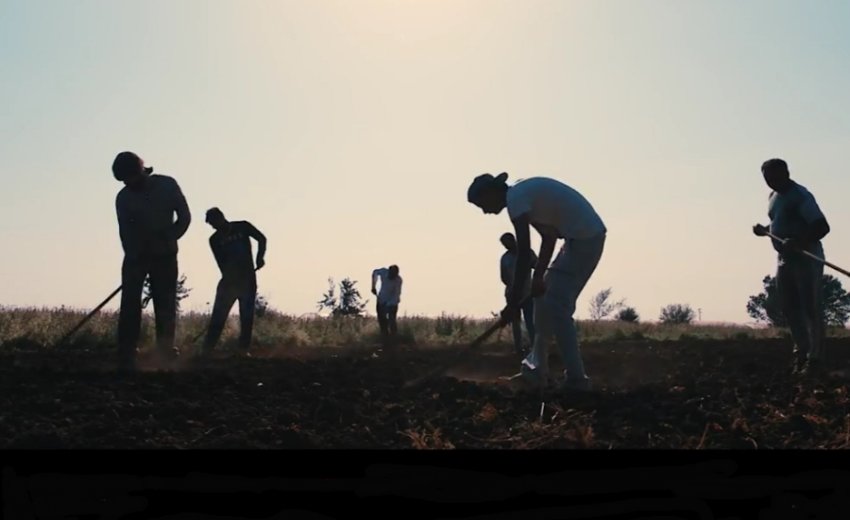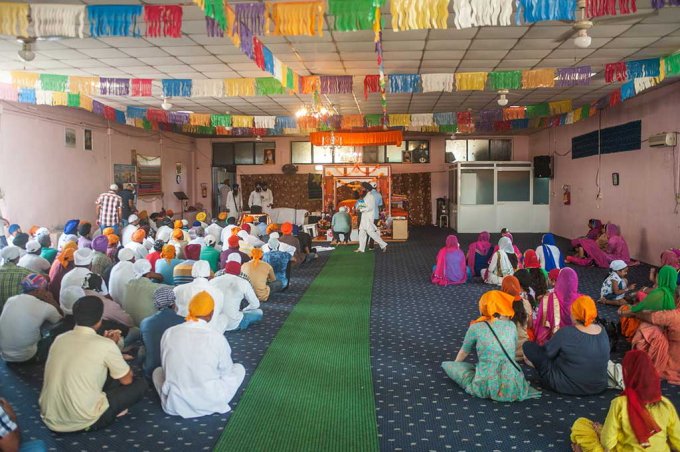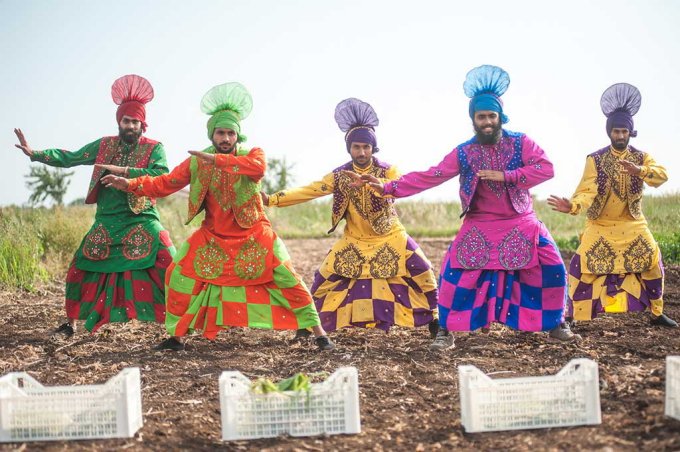“O’ Jatta, here comes Baisakhi!
Let’s celebrate, do Bhangra,
O’ my friend, here comes Baisakhi”
In Punjab the concept of “Harvest” means “Happiness” and “celebration”. When the crops are ripened the community celebrates the hard work of the farmers. The performance of the Bhangra is to rejoice the final outcome of the sweat and treadmill of the workers.
If you are familiar with the tiring visa formalities and the endless waiting in front of the Ambasciata, New Delhi, then you are also familiar about the endless lines of the Sikhs coming from Punjab and other parts of India standing at the gates of the Italian embassy waiting for their turn to get a stamp on their passports. This community of Sikhs are mostly coming from the rural areas in Punjab and have no knowledge of English or Hindi, their Punjabi is in a dialect that even I couldn’t understand, so lets not even talk about knowing “Italian”.
Thousands of them are migrating to support the agriculture industry in Italy, as most of them work in cheese factories, some of them work on the fields, plowing and seedling the crops. The Harvest had its screening at Vag61 on the 4th of May 2018. It was a poetic demonstration about the problems of the neo-liberalistic impetus. In this culture-structure-agency matrix the victim is none other than the common man.
The era of globalization that is taking over our lives has many side effects. It is no longer affecting us just culturally or geo-politically but also impacting the lives of the people who are overshadowed behind the businesses of these world markets. The Harvest manages to capture exactly this--the concealed reality of the Italian agro-food production. Their excellence in producing the world’s best parmiggiano reggiano is renowned and appreciated all over the world but the stories behind the effort to produce these fine flavors is overlooked.
‘The Harvest’ is a docu-musical that has combined the traditional Punjabi choreography “Bhangra” to unveil the exploitation of the Sikh Community working on the fields of Agro-Pontino, Italy. This film has not only confronted the grave problem of “Caporalato” which in Italian means the illegal recruitment of agricultural workers for very low wages (a form of slavery) but also the forceful use of “doping” of substances which in fact is forbidden in Sikhism, so that they can sustain on the fields for a longer period of time and are able to bear the harsh conditions of the work place.
The film celebrates the themes of identity, belonging, integration and inclusion. The film’s characters try to find solace at the temple, the only place for commemoration and gathering that they have. The incorporation of the recitation of Shabad adds to the beauty, solace as well as melancholy of the transitional state of mind of the Sikh migrants.
Gurwinder comes from Punjab who been working for years as a farm hand in Agro Pontino, not far from Rome. The very first day since his arrival in Italy, he's been living with the rest of the Sikh community in Latina province. Hardeep is also Indian, but her stress is Roman, and she works as a cultural mediator. She, born and raised in Italy, is trying to free herself from the memories of a family that emigrated in another age, while Gurwinder is forced, against his faith, to take methamphetamine and doping to bear the heavy work pace, to be able to send money to India. A victim of nexus between gang-master and a bureaucratic system, his life is far from normal.
A docu-musical, ‘The Harvest’, for the first time, combines the documentary and the traditional Punjabi choreographies, to show the humiliation of the workers in the fields, exploited by the gang-masters. In fact there are two stories intertwining with each other-one showing the work area or rather the labour-exploitation. The Sikh migrants working in the fields from the first hours of the morning till the evening and the second story is about ‘solace’, ‘finding roots’ in the soothing sounds of Gurbani and the community when the morning working hours culminate into congregation at the Gurdwara in the evening.
The agro-production in Italy is in stark opposition to migrants’ expectations, coming to Europe in huge numbers for a better life and better future but their dreams are shattered as the payment and living standards are worse than what they would have imagined. In developing countries the idea of moving to countries like Europe or America is like a dream that will make them successful, richer and give them better living standards. The truth is though masked and reality is only experienced once you reach the country.
Andrea Paco Mariani, the director of the film has visually recited a moving tale of immigration, exploitation, identity, inclusion and above all a story of socio-economic situations in the present neo-liberalization economy. Amidst the tough strenuous task of seeding, day after day, waiting for the renewal of residence permits, receiving fake pay checks, when will the Sikh migrants receive the rewards of their well-deserved harvest?
The winner of the Noida international film festival for the best documentary and a special selection for Delhi international film festival 2017, The Harvest is film made by Smk Videofactory. It is an independent production company born in 2009 in Bologna (Italy). The team is currently on tour in Europe for the screenings. They will be in France at The Instituto Italiano di Cultura on the 22nd of May and they will be back in Bologna for another screening on the 31st of May at Sala Ca’Bura( parco dei Giardini). The calendar of the screenings is available on their website https://www.theharvestmovie.org.


